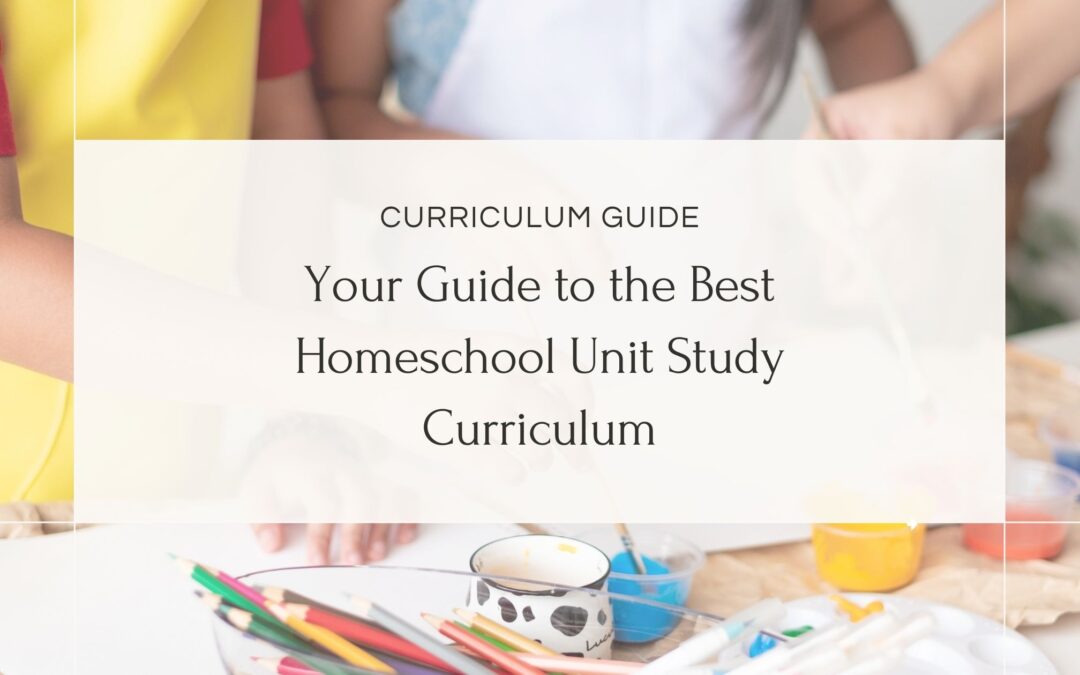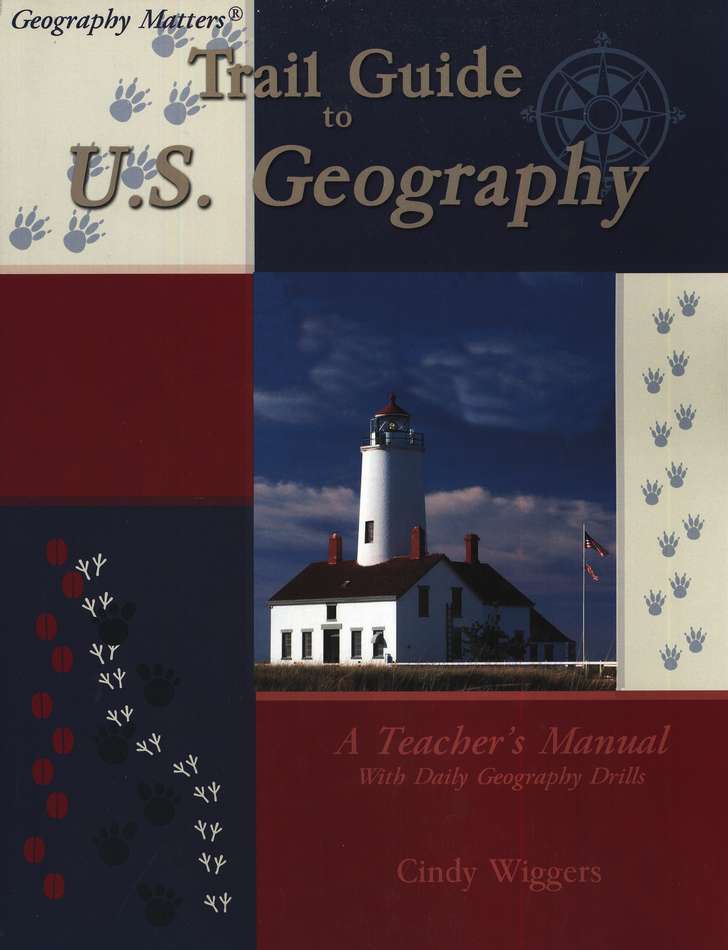This post is all about finding homeschool unit study curriculum.
Choosing to use the homeschool unit study method is a fun way to engage our kids in learning. Many parents that choose homeschool unit study like to take a DIY approach to their homeschool curriculum. If this is you, then this guide will help you put together your own homeschool unit study curriculum.
If you are like me and your eyes roll back in your head at the thought of putting together your own homeschool unit study curriculum, then this post is also for you. You will find the top publishers of homeschool unit study curriculum listed here.
As I was preparing this post, it became obvious that up to date, high quality, already done for you homeschool unit study curriculum is sparse. The handful of homeschool unit study publishers you will find in this post are the best homeschool unit study providers.
Whether you are looking for a put together homeschool unit study or want to DIY your homeschool unit study and just need direction, you will find this post helpful. You will find all of the best resources, many of them free, for your homeschool unit study curriculum.
A Comprehensive Guide to Homeschool Unit Study Curriculum
What is Homeschool Unit Study Curriculum?
Unit study curriculum takes a central theme and weaves it through different subjects like math, science, history, and language arts. For instance, a unit study on snakes might include:
- Reading about snake myths and legends in language arts.
- Learning about the ecological significance of snakes in geography.
- Study snake anatomy, behavior and adaptations for science.
- Creating drawings of the diamondback snake pattern or sculpt a cobra for art.
This homeschool method makes learning more interesting and interconnected.
List of Unit Study Homeschool Curriculum Publishers
Here’s a detailed look at some of the top unit study homeschool curriculum publishers, including an overview, key features, and their websites.
Konos
Overview: Konos is known for its hands-on, character-building unit studies. It integrates various subjects around thematic character traits such as attentiveness, obedience, and patience. Features:
- Multi-age teaching flexibility.
- Emphasis on experiential learning and character development.
- Suitable for K-8.
Website: Konos Curriculum
Five in a Row (FIAR)
Overview: FIAR is a literature-based unit study curriculum designed for young learners. Each unit is based on a children’s book, integrating subjects like geography, science, and art. Features:
- Rich in quality literature.
- Easy to use with minimal prep.
- Geared towards preschool to grade 4.
Website: Five in a Row
Gather ‘Round Homeschool
Overview: Gather ‘Round offers themed unit studies that cover all subjects for multiple grade levels, making it ideal for families with children of different ages. Features:
- Single theme for all subjects.
- Suitable for all grade levels.
- Printable and digital formats available.
Website: Gather ‘Round Homeschool
Tapestry of Grace
Overview: This curriculum is a classical education approach that integrates history, literature, and Bible studies. It’s designed for K-12 with different levels of depth for various ages.
Features:
- Classical education with a Christian perspective.
- Chronological history studies.
- Multi-level teaching approach.
Website: Tapestry of Grace
Trail Guide to Learning
Overview: This curriculum from GeoMatters integrates subjects through historical and geographical themes, focusing on critical thinking and research skills.
Features:
- History and geography-focused.
- Critical thinking and research emphasis.
- Suitable for elementary to middle school.
- Website: Trail Guide to Learning
Amanda Bennett Unit Studies
Overview: Amanda Bennett offers a wide variety of digital unit studies on topics from history to science. They are designed for flexible, engaging learning.
Features:
- Wide range of topics.
- Digital and easily accessible.
- Suitable for various ages.
Website: Amanda Bennett Unit Studies
Homeschool in the Woods
Overview: This publisher offers hands-on history unit studies, known for their interactive projects and timelines. They provide a chronological approach to history.
Features:
- Interactive and project-based.
- Chronological history studies.
- Detailed timelines and activities.
Website: Homeschool in the Woods
Campfire Curriculum
Overview: Campfire Curriculum offers engaging, experiential unit studies that often include outdoor and adventure-based learning. They cover a wide range of topics and are designed for family involvement. Features:
- Hands-on, experiential learning.
- Focus on outdoor and adventure activities.
- Suitable for various ages and grade levels.
Website: Campfire Curriculum
Harbor + Sprout
Overview: Harbor + Sprout provides thematic unit studies that emphasize creativity, exploration, and nature. Their curriculum is designed to nurture curiosity and a love of learning. Features:
- Focus on creativity and exploration.
- Nature-based and hands-on activities.
- Suitable for various ages and adaptable for multi-age teaching.
Website: Harbor + Sprout
The Prairie Primer
Overview: The Prairie Primer is a unit study curriculum based on the “Little House on the Prairie” series by Laura Ingalls Wilder. It integrates various subjects through the stories and experiences of the Ingalls family. Features:
- Literature-based with a historical focus.
- Integrates subjects like history, science, and art.
- Suitable for elementary and middle school levels.
- Website: The Prairie Primer
Creating Your Own Unit Study Curriculum
Creating your own unit study curriculum is the ultimate personalized approach to homeschooling. It allows you to tailor the learning experience to your child’s interests and needs. Here’s a step-by-step guide to help you get started.
1. Choose a Theme or Topic
Select a theme or topic that interests your child and covers multiple subjects. It could be anything from Ancient Egypt, space exploration, a favorite book series, or a natural phenomenon like weather.
2. Identify Learning Objectives
Determine what you want your child to learn from the unit study. Set clear goals for different subjects. For example:
- History: Learn about the key events and figures of Ancient Egypt.
- Science: Understand the principles of astronomy and space travel.
- Language Arts: Improve reading comprehension and writing skills through related literature.
- Art: Create projects inspired by the theme.
3. Gather Resources
Collect a variety of resources to support your theme. These can include:
- Books: Fiction and non-fiction books, reference materials.
- Online Resources: Educational websites, videos, documentaries.
- Hands-On Materials: Science kits, art supplies, maps, and models.
Amazon and Christian Book carry so many great resources to help you build your homeschool unit study curriculum. You can also shop specialty websites, like Home Science tools for things like science labs and dissection kits.
4. Plan Activities
Design activities that integrate different subjects around your theme. Ensure they are engaging and varied. Here are some ideas:
- Experiments and Projects: Conduct science experiments, build models, create art projects.
- Field Trips: Visit museums, science centers, historical sites, or nature reserves.
- Reading and Writing: Read books, write reports, create stories or journals related to the theme.
Games and Simulations: Use educational games and simulations to enhance learning.
5. Create a Schedule
Develop a flexible schedule to cover your unit study. Break down the theme into weekly or daily lessons. Ensure a balance between structured activities and free exploration.
- Weekly Plan: Focus on a specific aspect of the theme each week.
- Daily Schedule: Include a mix of reading, hands-on activities, and discussion.
6. Be Flexible and Adaptable
One of the biggest advantages of creating your own unit study is the flexibility it offers. Be prepared to adjust your plans based on your child’s interests and pace of learning. If a particular topic sparks a deeper interest, take the time to explore it further.
7. Utilize Community Resources
Leverage local community resources such as libraries, cultural centers, and educational groups. These can provide additional support and enrichment opportunities for your unit study.
8. Document and Reflect
Keep a record of your unit study curriculum and your child’s work. Reflect on what worked well and what could be improved for future unit studies. This documentation can be useful for planning future units and for homeschooling records.
Expanded Unit Study Outline: Space Exploration
Here is an example of a homeschool unit study you could put together on your own. This format can apply to any theme you can imagine.
Theme: Space Exploration
Week 1: Introduction to Space
- Reading: The Solar System by Jill McDonald.
- Language Arts: Write a short story about a journey through the solar system. Include descriptions of each planet visited.
- Math: Calculate the distances between planets. Create a scale model using proportional measurements.
- Science: Create a model of the solar system using various materials (clay, foam balls, etc.).
- History: Research the history of astronomy and early astronomers like Galileo and Copernicus.
Field Trip: Visit a planetarium to learn about the solar system through interactive exhibits and shows.
Week 2: Famous Astronauts and Missions
- Reading: Who Was Neil Armstrong? by Roberta Edwards.
- Language Arts: Write a biography of a famous astronaut, including their achievements and contributions to space exploration.
- Math: Solve problems related to the speed and trajectory of rockets. Calculate the fuel requirements for space missions.
- Science: Watch a documentary on the Apollo missions and discuss the technology used during the missions.
- History: Create a timeline of significant space missions, including the Apollo missions, the space shuttle program, and international space station milestones.
Project: Create a timeline of significant space missions with dates and important events.
Week 3: The Science of Space Travel
- Reading: National Geographic Little Kids First Big Book of Space by Catherine D. Hughes.
- Language Arts: Write an essay on the challenges and solutions of living in space, such as food, air, and exercise.
- Math: Calculate the gravitational forces on different planets. Understand the concepts of weight and mass in different gravitational fields.
- Science: Conduct a rocket launch experiment using simple materials like baking soda and vinegar or a small model rocket kit.
- History: Study the development of space travel technology from early rocketry to modern spacecraft.
- Discussion: Discuss the challenges of living in space, focusing on issues like microgravity, radiation, and life support systems.
Week 4: Future of Space Exploration
- Reading: Articles on current and future space missions from sources like NASA, SpaceX, and other space agencies.
- Language Arts: Write a persuasive essay on the importance of space exploration for the future of humanity.
- Math: Analyze data and statistics from recent space missions. Create graphs and charts to represent the information.
- Science: Design a space colony, considering factors such as habitat, food production, waste management, and energy sources.
- History: Research the evolution of space exploration plans, including Mars missions, lunar bases, and space tourism.
- Presentation: Present the space colony design to the family or homeschool group, explaining its features and how it supports human life in space.
Homeschool Unit Studies Free Resources
Homeschooling is a rewarding experience, but it can also be expensive. Fortunately, there are many free resources available for creating comprehensive unit studies. Here’s a guide to finding and using free materials for your homeschool unit studies.
Free Unit Studies Homeschool Curriculum
Homeschool Share
-
- Overview: A community-driven resource offering a variety of free unit studies, lapbooks, and printables.
- Features: Focuses on literature-based unit studies with extensive resources and ideas for hands-on learning.
- Website: Homeschool Share
Core Knowledge Foundation
-
- Overview: Provides free downloadable unit studies for pre-K through grade 8, based on the Core Knowledge Sequence.
- Features: Covers a wide range of subjects with detailed lesson plans and activities.
- Website: Core Knowledge Foundation
NASA for Educators
-
- Overview: Offers a variety of free educational resources and unit studies focused on space and science.
- Features: Includes lesson plans, videos, and interactive activities for all grade levels.
- Website: NASA for Educators
PBS LearningMedia
-
- Overview: Provides free access to thousands of educational resources, including unit studies across various subjects.
- Features: Includes videos, lesson plans, and interactive activities aligned with national standards.
- Website: PBS LearningMedia
Project Gutenberg
-
- Overview: Offers over 60,000 free e-books, including classic literature that can be used for unit studies.
- Features: Provides access to a vast collection of public domain texts for literature-based unit studies.
- Website: Project Gutenberg
National Geographic Kids
-
- Overview: Offers a variety of free educational resources, including unit studies on animals, geography, history, and more.
- Features: Includes articles, videos, and interactive activities designed to engage children in learning.
- Website: National Geographic Kids
Smithsonian Learning Lab
-
- Overview: Provides free digital resources, including lesson plans and activities, for creating custom unit studies.
- Features: Access to a vast collection of resources from the Smithsonian Institution’s museums and research centers.
- Website: Smithsonian Learning Lab
Teachers Pay Teachers (Free Section)
-
- Overview: A platform where educators share their teaching resources, including a wide range of free unit studies.
- Features: Free resources cover various subjects and grade levels, created by experienced teachers.
- Website: Teachers Pay Teachers
Library of Congress
-
- Overview: Offers a wealth of primary source materials and lesson plans that can be used to create history and literature unit studies.
- Features: Includes access to historical documents, photographs, maps, and more.
- Website: Library of Congress
National Park Service
-
- Overview: Provides educational resources and lesson plans focused on natural and cultural history.
- Features: Includes activities, virtual tours, and lesson plans related to national parks and historical sites.
- Website: National Park Service
Khan Academy
-
- Overview: Offers free courses and resources in various subjects, which can be integrated into unit studies.
- Features: Includes video lessons, practice exercises, and assessments for K-12 students.
- Website: Khan Academy
Frequently Asked Questions (FAQ) About Homeschool Unit Study Curriculum
Q1: What is a unit study curriculum?
A1: A unit study curriculum is an interdisciplinary approach to learning where a central theme or topic is explored across various subjects such as math, science, history, language arts, and more. It integrates different subjects into a cohesive study, allowing learners to delve deeply into a particular theme or topic.
Q2: How do unit studies benefit homeschooling?
A2: Unit studies offer several benefits for homeschooling families. They promote cross-curricular learning, allowing students to make connections between different subjects. Unit studies also cater to different learning styles and interests, making learning more engaging and meaningful. Additionally, they encourage critical thinking, problem-solving, and creativity.
Q3: How do I choose a unit study curriculum for my homeschool?
A3: When choosing a unit study curriculum, consider your child’s interests, learning style, and academic goals. Look for a curriculum that aligns with your educational philosophy and offers resources and materials that suit your child’s needs. You may also want to consider the flexibility and adaptability of the curriculum to fit your homeschooling schedule and preferences.
Q4: Can I use unit studies with multiple grade levels?
A4: Yes, unit studies can be adapted to accommodate multiple grade levels within a homeschooling family. You can adjust the depth and complexity of the activities and assignments based on each child’s age, ability, and learning level. Unit studies provide an opportunity for siblings to learn together, fostering collaboration and shared experiences.
Q5: How do I create my own unit study curriculum?
A5: To create your own unit study curriculum, start by selecting a central theme or topic that interests your child. Identify the learning objectives for each subject area and gather resources such as books, videos, worksheets, and hands-on materials. Design engaging activities and projects that integrate different subjects and cater to your child’s learning style. Flexibility and customization are key when creating your own unit study curriculum.
Q6: Are there free resources available for unit study curriculum?
A6: Yes, there are many free resources available for unit study curriculum. Websites like Easy Peasy All-in-One Homeschool, Homeschool Share, and PBS LearningMedia offer a wide range of free unit studies and educational materials. You can also find free e-books, videos, lesson plans, and printables from organizations like NASA, Project Gutenberg, and the Library of Congress.
Q7: How can I assess my child’s progress with unit studies?
A7: Assessment in unit studies can take various forms, including quizzes, tests, essays, projects, presentations, and discussions. Consider using a combination of formal and informal assessment methods to evaluate your child’s understanding and progress. Look for opportunities for self-assessment and reflection, allowing your child to take ownership of their learning journey.
Q8: Can unit studies be used as a standalone curriculum?
A8: Yes, unit studies can be used as a standalone curriculum or as a supplement to existing curriculum resources. Some homeschooling families prefer to base their entire curriculum around unit studies, while others integrate them into their broader educational plan. Unit studies provide flexibility and versatility, allowing you to tailor your homeschooling approach to meet your child’s needs and interests.
This post is all about homeschool unit study curriculum.
Read More Curriculum Guides:
19 of the Best Traditional Homeschool Curriculum Options – My Homeschool with a View
Experience Successful Homeschooling with this Classical Curriculum Guide




